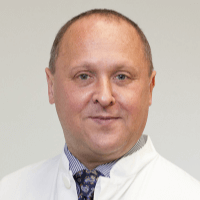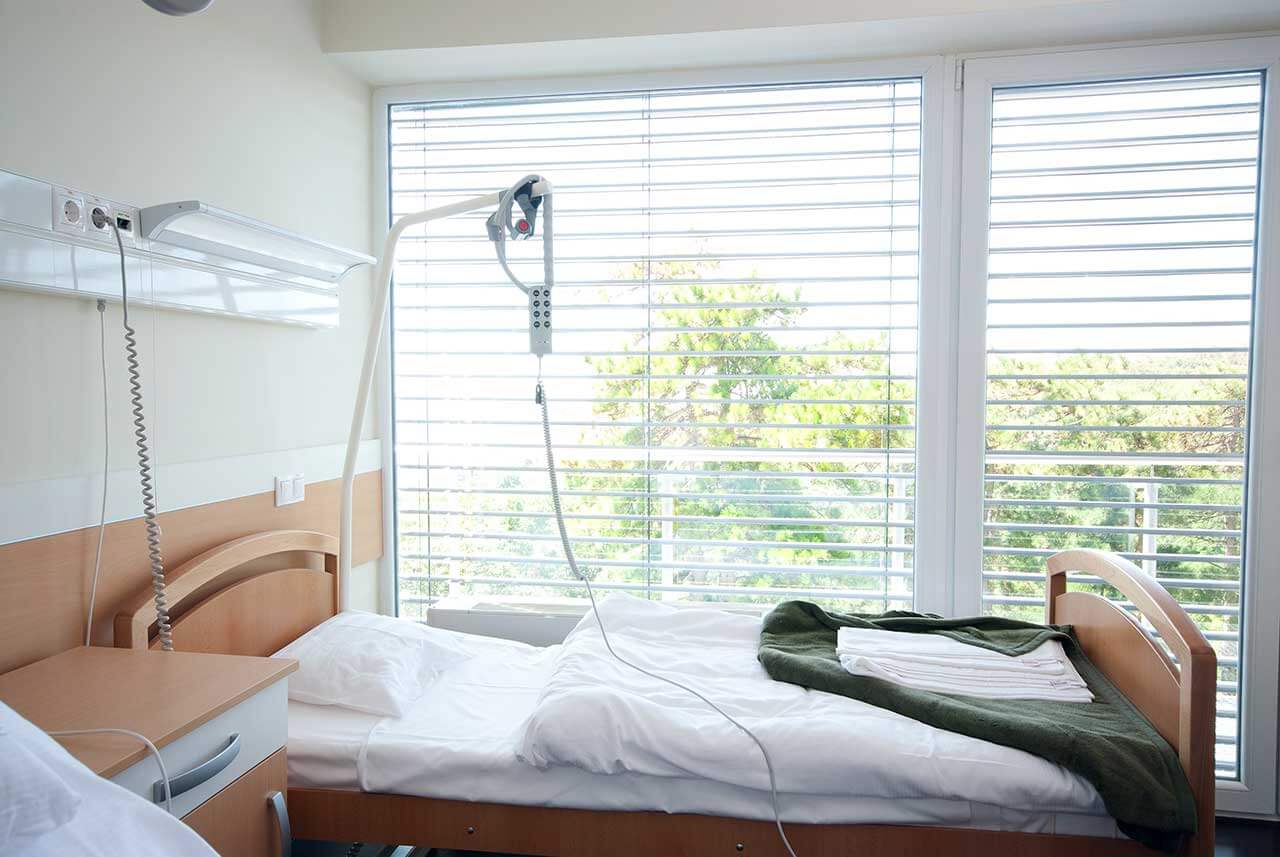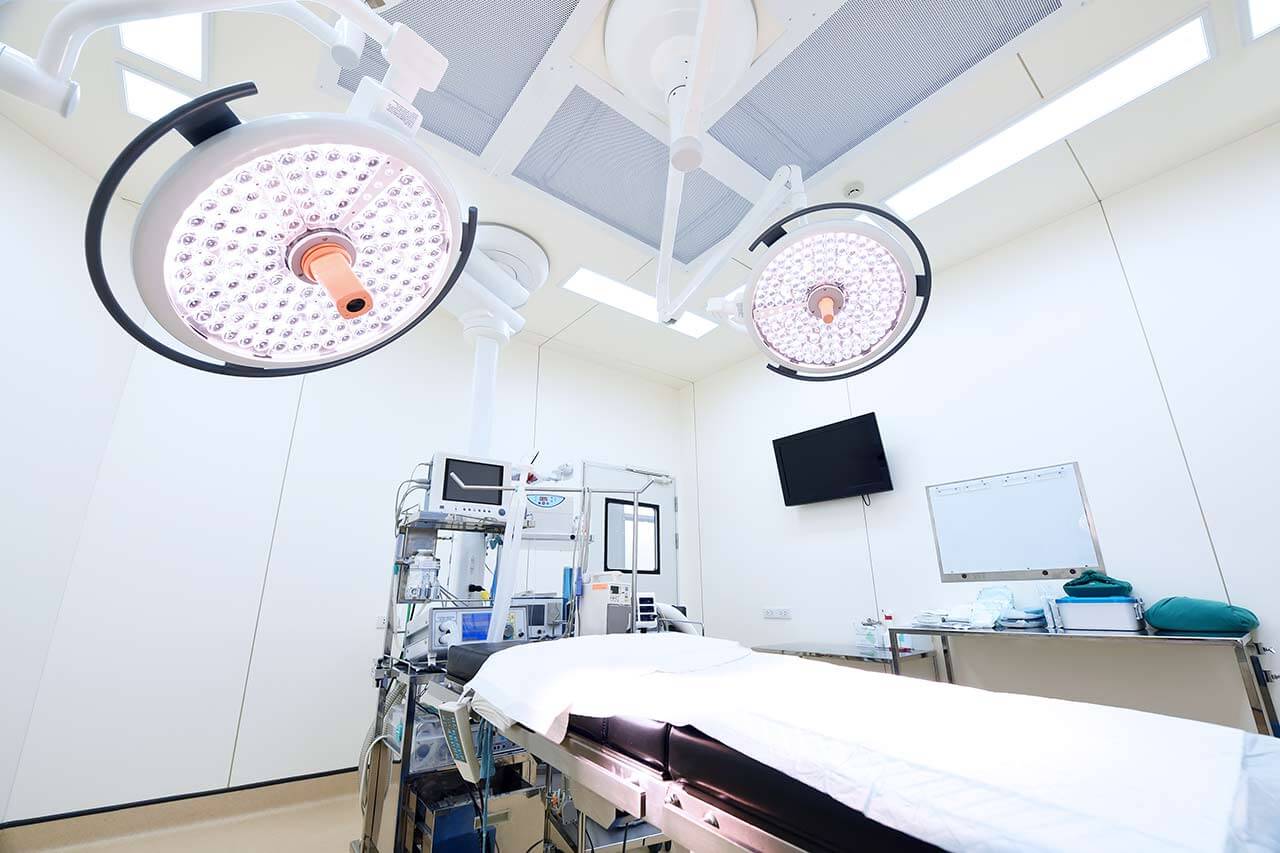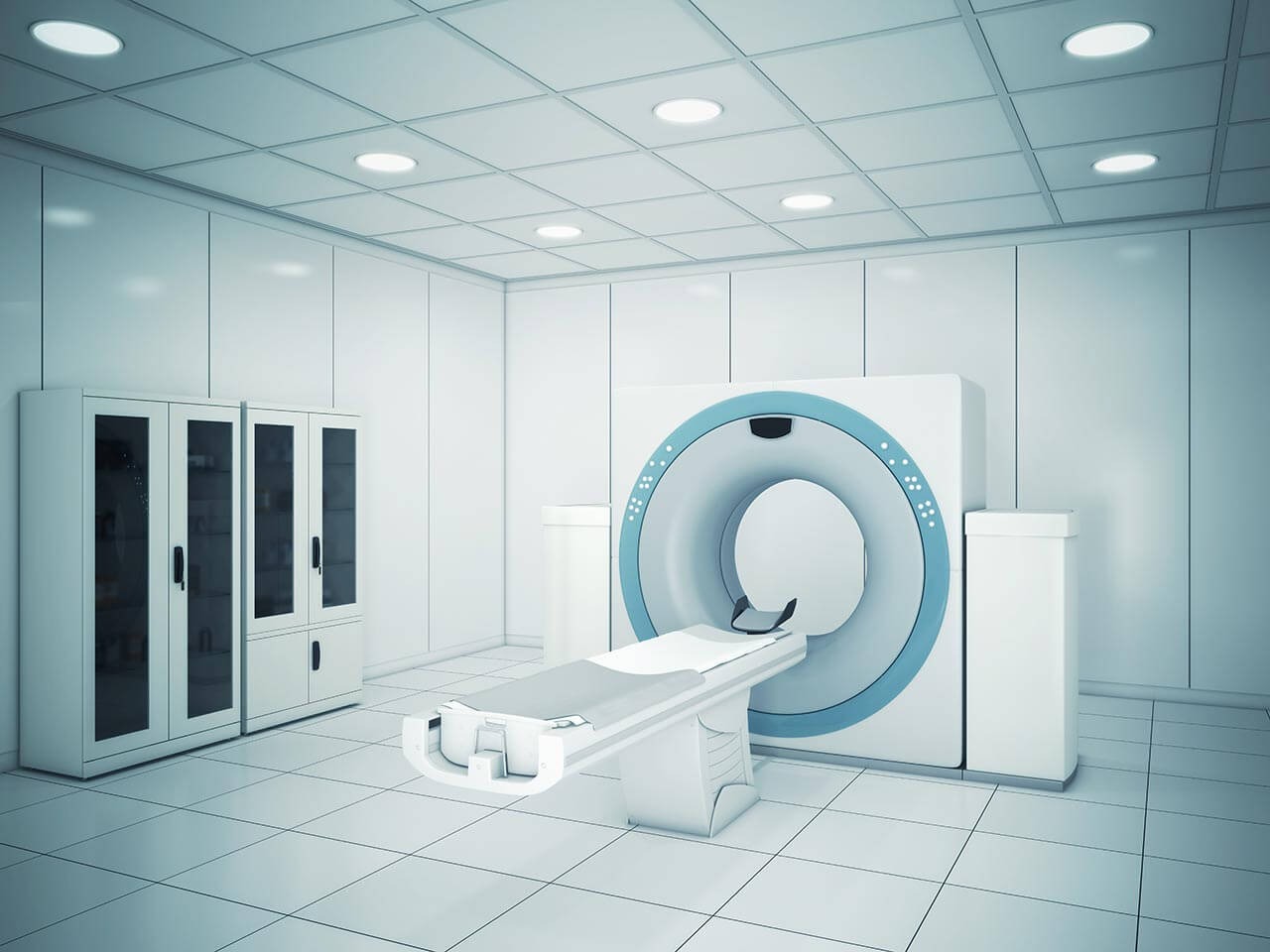
About the Department of General, Abdominal and Vascular Surgery at Marienhaus Hospital St. Elisabeth Neuwied
The Department of General, Abdominal and Vascular Surgery at the Marienhaus Hospital St. Elisabeth Neuwied offers the full range of advanced surgical treatments for various diseases, ranging from routine interventions for inguinal hernias to major cancer surgery. The department also employs a highly skilled team of vascular surgeons responsible for treating pathologies of the arteries, veins, and lymphatic vessels. Collaboration with specialists from related medical fields plays a key role in clinical practice. For example, in cases of gastrointestinal and endocrine diseases, gastroenterologists, endocrinologists, and other experts are engaged in the therapeutic process. The department's surgeons, together with oncologists and radiation therapists, treat patients with malignant gastrointestinal tumors. The department widely practices sparing minimally invasive surgery, which guarantees the patient minimal risks, fast recovery, and the absence of scars. Vascular interventions are most often performed using endovascular techniques under imaging guidance. Since 2019, the department has introduced innovative robot-assisted surgery using the da Vinci®X surgical system. Such interventions provide patients with excellent treatment results with minimal trauma to healthy tissues. Minor interventions are almost always performed on an outpatient basis. The Head Physician of the department is Dr. med. Claus Schneider.
Of particular interest to the department's team of surgeons is cancer surgery. Specialists perform interventions for stomach, esophageal, colon, rectal, and pancreatic cancers. Due to the availability of innovative technologies and the rich experience of doctors, minimally invasive techniques are often used for tumor removal surgery. In some cases, doctors perform interventions using the da Vinci surgical system. The primary goal for surgeons is to completely remove the malignant tumor while preserving the affected organ, if possible. Cancer requires comprehensive treatment, so the therapeutic process extends beyond a surgical intervention. Depending on the particular clinical case, patients may also receive chemotherapy, radiation therapy, immunotherapy, targeted therapy, and other conservative treatment options. Psychological support is also offered to patients and their families, if necessary. Patients with incurable stages of cancer are offered palliative care aimed at improving their quality of life.
When clinically indicated, the department's abdominal surgeons perform stomach cancer surgery using the da Vinci surgical system. Robot-assisted surgery is characterized by high efficiency, precision, and safety. The department's specially trained surgeons have been performing surgery with the da Vinci®X system since 2019. An attending physician makes a decision to perform a gastrectomy (total or partial stomach removal) based on the patient's clinical data. During robot-assisted surgery, the surgeon makes only a few small incisions in the skin and soft tissue, just as in minimally invasive surgery. However, the da Vinci surgical system is more advanced compared to laparoscopy equipment, featuring a higher-resolution camera and miniature surgical instruments embedded into four robotic manipulator arms. It is important to know that the da Vinci robotic arms have a greater range of motion than the human wrist, making them highly maneuverable. Patients should understand that robotic surgery is performed under the control of an experienced surgeon, who operates the surgical system from a console and gives clear commands to the robot, which it executes with instruments integrated into its manipulator arms. The main advantages of robot-assisted surgery are minimal risks of infection and other complications, absence of pain in the postoperative period, low blood loss, inconspicuous scars, and a short hospital stay. The department's surgeons perform da Vinci robotic surgery for stomach adenocarcinoma (the most common type of stomach cancer), gastrointestinal stromal tumors, and stomach neuroendocrine tumors.
The department's team of general and abdominal surgeons brilliantly performs surgical interventions for benign gastrointestinal diseases. The medical facility regularly operates on patients with gastric ulcers, stomach polyps, colon polyps, chronic inflammatory bowel disease (Crohn's disease and ulcerative colitis), pancreatitis, gallstone disease, fecal incontinence, and other pathologies. In close cooperation with the Department of Trauma Surgery, the department's surgeons provide comprehensive treatment for patients with severe polytrauma. Priority is always given to performing surgery using minimally invasive techniques, and open interventions are performed in specific cases.
A team of highly qualified vascular surgeons specializing in classical open and endovascular interventions represents vascular surgery. The department performs all vascular surgical procedures that do not require the patient to be connected to a heart-lung machine. Vascular surgeons cooperate closely with specialists in angiology and interventional radiology, which makes it possible to take into account all the peculiarities of the patient's clinical case and prescribe the optimal type of treatment. Vascular surgeons, together with specialists from the Department of Interventional Radiology, perform more than 1,000 interventions of varying complexity annually.
The department is proud of its successful experience in the treatment of diabetic foot syndrome. The department offers various surgical options. The most effective treatment method is prescribed based on the size and extent of the foot tissue damage. Specialists perform angioplasty (removal of gangrenous tissue with follow-up vascular reconstruction to restore blood circulation), necrectomy (removal of gangrenous tissue to prevent further spread of the pathological process), endarterectomy (removal of blood clots and atherosclerotic plaques to normalize blood flow), autogenous bypass (formation of an additional blood flow pathway to improve foot blood supply), and stenting of the lower limb arteries (stent placement to normalize blood flow).
An important focus of the department's clinical practice is the treatment of abdominal and thoracic aortic aneurysms. The treatment involves the use of modern methods, for example, endovascular aneurysm embolization. This technique avoids extensive and invasive surgical interventions. As a rule, a hospital stay lasts from five to six days.
As part of stroke prevention, the department regularly performs interventions on the arteries supplying the brain (for example, the carotid artery). All modern methods of restoring arterial patency, including stent implantation and open surgery, are also used here.
The department's range of surgical services includes:
- General and abdominal surgery
- Surgical treatment of malignant diseases
- Surgery for stomach cancer
- Surgery for esophageal cancer
- Surgery for colon cancer
- Surgery for rectal cancer
- Surgery for pancreatic cancer
- Surgery for lung metastases
- Surgical treatment of benign diseases
- Surgery for gastric ulcer
- Surgery for stomach and colon polyps
- Surgery for Crohn's disease and ulcerative colitis
- Surgery for pancreatitis
- Surgery for gallstone disease
- Surgery for fecal incontinence
- Surgery for severe polytrauma
- Surgery for hernia repair
- Surgery for hyperhidrosis (excessive sweating)
- Surgical treatment of malignant diseases
- Vascular surgery
- Surgery for diabetic foot syndrome
- Surgery for abdominal and thoracic aortic aneurysms
- Surgery on the carotid arteries to prevent stroke
- Surgery on the lower limb arteries for obliterative endarteritis
- Surgery for deep vein thrombosis
- Surgery for chronic venous insufficiency
- Surgery for varicose veins
- Surgery for dialysis access formation
- Other therapeutic options
Curriculum vitae
Higher Education and Professional Career
- 1984 - 1990 Medical studies, Philipps University of Marburg and University of Essen.
- 1991 - 1992 Internship, Department of Surgery, Minden Hospital.
- 1993 Scholarship of the Jung Foundation for Science and Research, Institute of Theoretical Surgery at the Philipps University of Marburg.
- 1993 Doctorate, Philipps University of Marburg
- 1994 - 2000 Research Fellow, Department of General Surgery, University Hospital Hamburg-Eppendorf.
- 2000 - 2002 Assistant Physician, Department of Thoracic and Vascular Surgery, General Hospital Hamburg-Altona.
- 2002 - 2004 Senior Physician, Department of General, Abdominal and Thoracic Surgery, University Hospital Hamburg-Eppendorf.
- 2004 Ship's Doctor, RV Polarstern, south of the Arctic Ocean.
- 2004 - 2008 Managing Senior Physician, Department of General, Abdominal and Thoracic Surgery, University Hospital Hamburg-Eppendorf.
- Since 2009 Head Physician, Department of General, Abdominal and Vascular Surgery, Marienhaus Hospital St. Elisabeth Neuwied.
Memberships in Professional Societies
- Board Member of the Cancer Society Rhineland-Palatinate.
Photo of the doctor: (c) Marienhaus Kliniken GmbH




